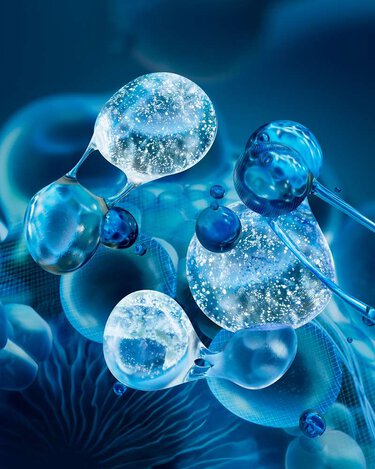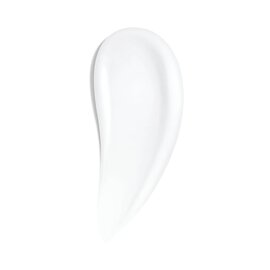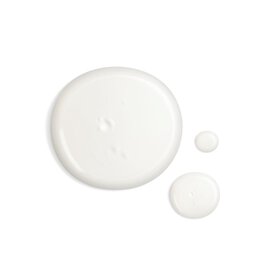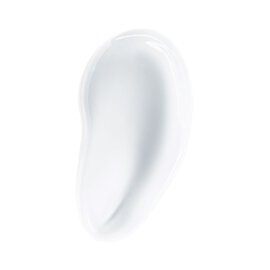WORKING OUT FOR AQUATIC BIODIVERSITY PRESERVATION SINCE 2012
[ WATER LOVER PROGRAM SINCE 2012 ]

How we’re committed to aquatic biodiversity
Because no one can perform, move, breathe without water, Biotherm is working out for aquatic biodiversity preservation. This commitment is reflected in formulas that are designed to be more respectful, eco-designed packaging with a plastic circularity goal, and ongoing support for the scientific community through Biotherm’s Water Lover program since 2012.
Our Commitments & Achievements

[ More Respectful Formula Program ]
Developing respectful formulas for you and aquatic biodiversity
Biotherm's essence is deeply rooted in biotechnology—the core of our high-performing skincare. By working with nature, in partnership with biologists, we derive insights to create innovative and sustainable beauty solutions. We believe that biotech paves the path for beauty advancement, offering active ingredients that guarantee enhanced skin benefits while ensuring safety and environmental sustainability.
Using biotechnology, Biotherm skillfully mimics and optimizes what nature already gives us—improving without sacrificing efficacy or safety. Every new product formula follows the principles of our Water Lover Formulation Charter, established in 2019 and updated year after year, to include the latest state-of-the-art practices, environmental principles and ensuring ultra-performance. This charter aims to minimize our products' ecological environmental footprint on aquatic ecosystems through stringent requirements on ecotoxicity, biodegradability, and the inclusion of sustainably sourced biotech ingredients.
Following our environmental evaluation of our full formula range in 2022, which evaluated our portfolio’s impact on aquatic biodiversity, six formulas were tested in 2023 on 3 aquatic organisms, such as phyto- or zoo-plankton, in soft water to assess the impact on aquatic life. Results are expected in 2024.

[ Plastic Circularity Program ]
moving towards a circular economy
Biotherm's Water Lover program is dedicated to pushing the boundaries of sustainable design beyond our formulas. This initiative extends to incorporating sustainable resources into every facet of our operations —from packaging to in-store consumer experiences. Our strategy includes minimizing virgin plastic use, and advocating for a more circular economic model to target full plastic circularity.
In 2023, we are advancing our goals, transitioning our 15ml jar lids and the caps for Men's Lotions in the 30ml size to 100% recycled plastic (post-consumer recycled, PCR), which is in step with our ambition for achieving 100% PCR and total plastic circularity in our packaging.

[ SUPPORTING SCIENTIFIC RESEARCH ]
protecting aquatic biodiversity
Since the launch of the Water Lover sustainability program in 2012, Biotherm has remained steadfast in its pledge to protect aquatic biodiversity. This commitment is at the heart of our mission, guiding our partnerships as well as actions to foster a healthier future for aquatic biodiversity.
Throughout the years, Biotherm has forged and sustained partnerships with recognized non-governmental organizations (NGOs) such as Mission Blue & the Tara Ocean Foundation. These alliances are crucial in advocating for the preservation of aquatic biodiversity.
In 2022, Biotherm embarked on an awe-inspiring venture with renowned French skipper Paul Meilhat to deepen our connection with the Ocean. Together, we launched the Biotherm IMOCA, a ship that serves as the embodiment of our commitment. This collaboration took flight with our participation in the prestigious Route du Rhum in September 2022, a milestone in our ongoing efforts to improve environmental sustainability.
Biotherm and Paul Meilhat's collaboration with the Tara Ocean Foundation during The Ocean Race 2023 was a new step in Ocean conservation. Beyond the race, their IMOCA vessel, transformed into a mobile laboratory, which was fully equipped with a state-of-the-art Imaging FlowCytobot (IFCB) in January 2023. This instrument, which uses laser-induced fluorescence and light-scattering technology, detects and visualizes phytoplankton, capturing up to 30,000 high-resolution images per hour. The data we collect is shared with the Tara Ocean Foundation and its research partners to support the ongoing effort to understand our Oceans.

Because the future of our oceans won’t wait
Today, less than 6% of the ocean is officially protected in any way. Despite the critical role that the ocean plays on our planet’s health and climate change regulation, it remains critically under protected and under studied. Biotherm comes from water and we want to give back to it. Our Water Lovers sustainability program is here to minimize our environmental footprint on water and aquatic ecosystems for a better future for our oceans.
See all our products at the forefront of preserving aquatic biodiversity
BIOTHERM STORIES
[ GET INSPIRED BY MORE BIOTHERM’S COMMITMENTS ]






















![Force Supreme Blue Serum [LP-XR] 60 ml pump bottle packshot](https://int.biotherm.com/dw/image/v2/BDCR_PRD/on/demandware.static/-/Sites-biotherm-master-flaghsip-catalog/default/dwe5d885ca/images/men-care/forcesupreme/BIO2121/Bio_skme_forcesupreme_Blue-Serum-LPXR_60ml_3614274131826_2023_dmi_Packshot.jpg?sw=270&sfrm=jpg&q=85)




